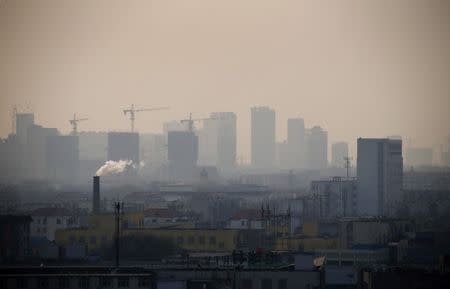China's Hebei to exempt green 'pace setters' from output curbs

SHANGHAI (Reuters) - Northern China's Hebei, the country's smoggiest province, will exempt environmental "pace setters" from output curbs as part of a new plan aimed at providing more incentives for local firms to cut pollution, local media said on Thursday. Hebei, which produces around a quarter of China's steel, has been on the front line of the country's four-year war on pollution, with authorities anxious to prevent the province's heavy smog from drifting into neighboring Beijing. Cities throughout Hebei were part of a punishing winter campaign that forced all enterprises in major industries like steel to cut production when air quality declined, but firms complained they were being punished whether they had complied with state pollution standards or not. China has since promised to put an end to a "one size fits all" approach to environmental compliance and aims to devise more nuanced environmental policies that will minimize economic disruption. In the first phase of Hebei's new "pace setter" scheme, three to five leading enterprises from industrial sectors like steel, cement, glass-making, coking and waste-to-energy will now be given preferential treatment, the local Yanzhao Metropolis Daily newspaper reported. According to "implementation guidelines" published earlier this month on the website of the Hebei environmental protection bureau, the plan will encourage enterprises to cut pollution and carbon emissions, upgrade technology and improve efficiency. "Firms that have obtained the 'pace setter' status... do not need to be included in output restriction lists," the document said, adding that they would also be entitled to "targeted assistance" from local authorities. Third-party assessors will select firms that have imposed stricter than necessary emissions standards or implemented a "green supply chain" system, as well as those that have relatively low levels of coal and water consumption. The list will be refreshed every two years, but "pace setters" found to have exceeded emissions standards or violated other environmental rules would have their status revoked, the document said. (Reporting by David Stanway; Editing by Joseph Radford)
